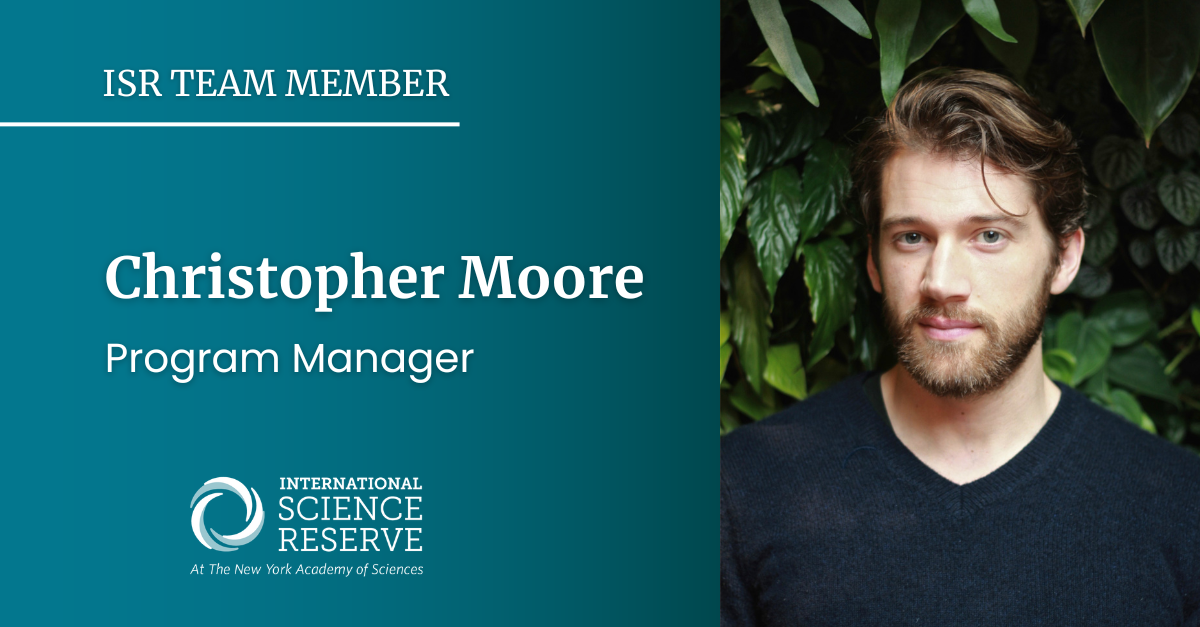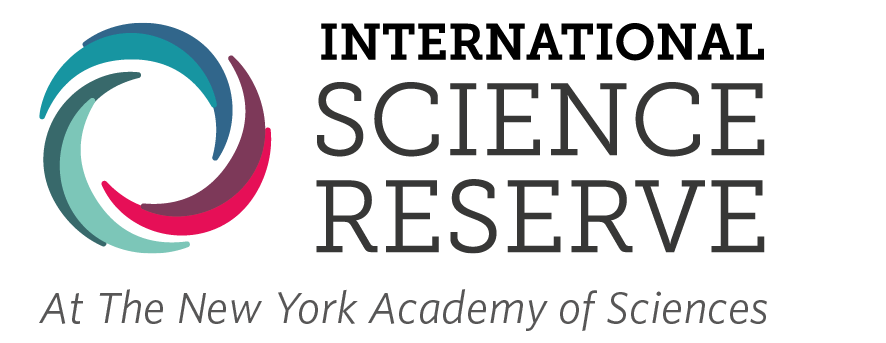Meet ISR’s new Program Manager
by ISR Staff

The International Science Reserve (ISR) is pleased to announce that Christopher Moore has joined our team as Program Manager.
Chris comes to the ISR with 15 years of international leadership experience in the public and private sectors ranging from international development and crisis response at the International Rescue Committee, aiding refugees from the Syrian Civil War, in addition to his service as a Special Operations Intelligence Officer in the United States Air Force and as an international volunteer in the Ukraine conflict.
We recently spoke with Chris about his hopes and goals for the ISR in the next few years.
Why does the world need the International Science Reserve at this moment?
As the complexity and quantity of crises around the world increase, new challenges will emerge that will require continuous learning and adaptation to address them. Many governments and institutions lack the capacity or expertise to prepare and address all possible scenarios—especially crises that may be unforeseen. The ISR can help address this challenge by tapping into a deep bench of scientists on an as-needed basis without the cost and complexity that would arise if each institution or government tried to address all possible crisis scenarios with their own staff.
No one institution can be everywhere, but via the ISR, institutions can be connected to ISR’s community of scientists who are ready around the globe and eager to be of assistance when the world needs their expertise. The world needs the ISR to help create those relationships and foster a community of practice around continuous learning and preparation across disciplines and borders.
What lessons will you bring from your prior work to help train scientists to act when a major, cross-border emergency hits?
In any crisis, the time it takes to respond is the most critical factor in saving lives and reducing harm. When dealing with disasters, there are also snowball effects. If a situation becomes not just linearly worse, but exponentially worse, problems become intractable. Especially if problems are not addressed before a tipping point. Anything that can be done to shorten the response window during a crisis is worth resolving before a crisis happens. For example, during the pandemic, governments delayed evidence-based mitigation efforts, such as reducing travel. This, in turn, allowed the pathogen to spread rapidly around the globe when it may have been possible to curtail its spread to a particular region.
I have learned that preparedness exercises that teach you the basic skills of addressing a disaster become invaluable when a crisis hits. Even simple things like decision trees, templates, checklists, pre-identified groups and communication channels, and pre-existing relationships with institutions and practitioners can be invaluable in high stress and high stakes situations.
Given the volatile nature of social media and online dialogue lately, what positive role can the ISR play in bringing scientists together online to collaborate in the ISR’s Digital Hub?
Having a separate discussion environment for scientists to collaborate with each other can mitigate the volatility of other platforms and help them focus on the important tasks at hand. Part of fostering a focused crisis response community is making sure that everyone participating is there for the same goal: to learn and share resources.
Further, given how easy it is to misinterpret complex data or draw conclusions from scientific studies, and the difficulty all institutions have with navigating the mass media environment, our network of scientists will likely find it more effective to collaborate amongst themselves. This is important before they address the wider public in a crisis scenario where it becomes even more important to practice good communication and establish trust that may be difficult to recover once a misinterpretation or misinformation has traveled around the world.
What are your hopes and goals for the International Science Reserve in 2-3 years?
My hope is for ISR to grow not only its network of scientists, but also its relationships with private and public institutions, so that no matter where in the world a crisis develops, we are ready to help via our access to the top minds and resources everywhere. Since we are relatively new, my goal is to develop a community of practice among the world’s scientists, with a library of best practices, case studies, realistic scenarios, planning exercises, and “serious games.” We want to become a go-to resource when a crisis requires scientific expertise.


